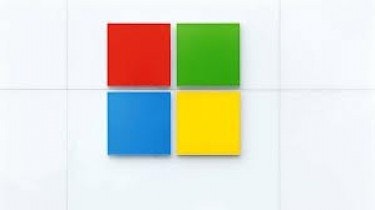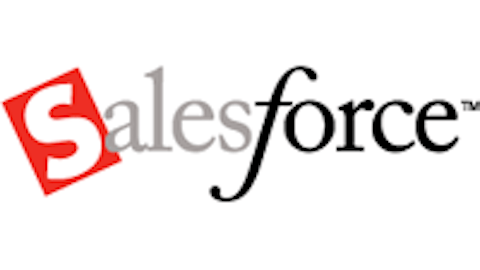
Formerly the world’s largest company, the Microsoft Corporation (NASDAQ:MSFT) name no longer carries the luster it once did during the tech bubble heyday. Competitors such as Apple Inc. (NASDAQ:AAPL), Google Inc (NASDAQ:GOOG), Facebook Inc (NASDAQ:FB), and even Amazon.com, Inc. (NASDAQ:AMZN) have become the most powerful and relevant names in technology. While Microsoft has rallied significantly in recent weeks, a quick glance at its 5-year and 10-year charts indicate the share price has appreciated only modestly.
Industry analysts have also criticized Microsoft Corporation (NASDAQ:MSFT) CEO Steve Ballmer as consistently being behind the curve in anticipating the “next big thing” in technology. The latest versions of Windows and Office have also been met with modest applause. And although Microsoft Surface may be gaining traction, how many of your friends or co-workers use a Windows Phone?
Despite all of the potential missteps at Microsoft Corporation (NASDAQ:MSFT), the tide appears to be finally turning in the company’s favor–advertently or inadvertently. A large reason for the newfound optimism is Microsoft’s participation in the rise of cloud computing.
Here are four reasons why Microsoft has respectable upside from $35 per share:
The Redmond, WA headquartered Microsoft is in the midst of a powerful software transition to cloud computing. The company’s Windows Azure and Office 365 platforms both have exceeded a $1 billion annual run rate, greater than any other software company excluding Salesforce.
Microsoft unveiled the Xbox One, a breakthrough next-gen entertainment console on May 21. The new system will not support existing Xbox 360 games, a huge boon for Microsoft and publishers such as Electronic Arts Inc. (NASDAQ:EA), Activision Blizzard, and Take-Two Interactive. Xbox 360 remains the best-selling console for the 26th consecutive month in February 2013 with 302,000 units sold.
The company announced that it will no longer be providing technical support for the venerated Windows XP operating system after April 8, 2014, which will require enterprise and small-business customers to upgrade with Windows 7 or 8. Microsoft is also planning to release Windows 8.1 on June 26, the first major update to its latest OS.
Investors expect the company to announce a dividend raise in 2013, similar to the 15% and 21% increases announced by Apple Inc. (NASDAQ:AAPL) and Cisco Systems, Inc. (NASDAQ:CSCO), respectively. Microsoft also has over $70 billion in cash-equivalent securities, which may cause it to announce a new buyback in Apple’s footsteps.
Wall Street is becoming more bullish on Microsoft Corporation (NASDAQ:MSFT). Analysts at Stifel raised their price target on the stock to $38 from a previous $38 and reiterated a “buy” rating on May 15. Sanford Bernstein is the most optimistic with a $40 price target.
Microsoft is also gaining traction in the tablet arena with its Surface device. Sources indicate the company will unveil a second-generation device with a lower $249-$299 price point, appealing to a wider audience. The current entry-level model starts at $499, leading industry analysts to speculate a range of Windows devices costing less than $500 to reach the market in coming months.
Comeback tech stocks
Microsoft Corporation (NASDAQ:MSFT) isn’t the only technology company staging a comeback. Former starlets Cisco Systems, Inc. (NASDAQ:CSCO) and Intel Corporation (NASDAQ:INTC) also appear to be gaining traction.
On May 15, Cisco reported better-than-expected third quater earnings of $0.52 on $12.2 billion in revenue. The company designs and sells networking equipment that connects people through data, voice, and video communication. CEO John Chambers stated on his conference call that he sees the U.S. economy in a “slow but steady” improvement.
A portion of Chambers’ confidence for the broader economy likely stems from the recent success at Cisco Systems. After falling out of favor back in 2011, the company is now gaining market share at the demise of competitors such as Aruba Networks, which recently provided a less-than-stellar report. Analysts at Goldman Sachs added Cisco Systems to its vaunted Conviction Buy list with a $28 price target, citing business improvement and acceleration into second half of 2013.
Semiconductor giant Intel Corporation (NASDAQ:INTC) is gaining momentum on the back of a new CEO hire and introduction of its Silvermont chip architecture for mobile devices. Former COO Brian Krzanich (pronounced “ker-SAN-itch”), a 31-year Intel veteran, succeeded longtime CEO Paul Otellini on May 16.
Krzanich has vowed to accelerate Intel’s mobile strategy with Silvermont for tablets and mobile phones, following widespread acknowledgement that the semiconductor leader has fallen behind at the expense of market share gains to competitors QUALCOMM, Inc. (NASDAQ:QCOM) and Broadcom.
Wall Street believes now is the time to be greedy when others are fearful with respect to PC market sentiment at an all-time low. Analysts at RBC Capital upgraded Intel to “outperform” with a $29 price target from a previous $24, stating the company’s 2013 gross margins will be better than anticipated and a new mobile strategy.
Foolish takeaway
While Microsoft Corporation (NASDAQ:MSFT) shares have gathered impressive momentum in recent weeks, further gains may be in store for long-term investors who believe that cloud computing is here to stay.
The company appears to be well-positioned at the beginning of a long runway with enterprise, mid- and small-business customers coming online to the cloud. This transition will result in a significant amount of recurring revenue. Secondary catalysts with new product cycles in Xbox and Windows 8 mobile devices also bode well for shares.
Microsoft’s board of directors should also provide new guidance on its cash management plan, with a 10-15% dividend raise likely before the end of 2013.
The article Why Microsoft Is the Best Investment in Cloud Computing originally appeared on Fool.com and is written by John Macris.
John Macris has no position in any stocks mentioned. The Motley Fool recommends Cisco Systems and Intel. The Motley Fool owns shares of Intel and Microsoft. John is a member of The Motley Fool Blog Network — entries represent the personal opinion of the blogger and are not formally edited.
Copyright © 1995 – 2013 The Motley Fool, LLC. All rights reserved. The Motley Fool has a disclosure policy.


